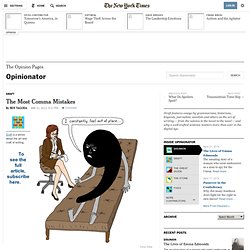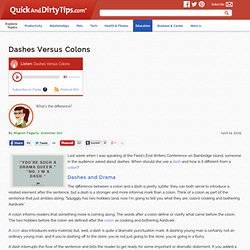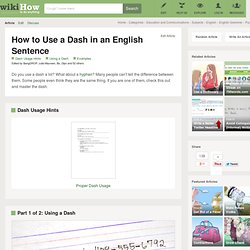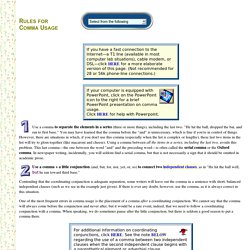

The Most Comma Mistakes. Draft is a series about the art and craft of writing.

As I noted in my earlier article, rules and conventions about when to use and not to use commas are legion. But certain errors keep popping up. Here are a few of them. Identification Crisis If I’ve seen it once, I’ve seen it a thousand times. I’m referring to a student’s writing a sentence like: I went to see the movie, “Midnight in Paris” with my friend, Jessie. Comma after “movie,” comma after “friend” and, sometimes, comma after “Paris” as well. I went to see the movie “Midnight in Paris” with my friend Jessie. If that seems wrong or weird or anything short of clearly right, bear with me a minute and take a look at another correct sentence: I went to see Woody Allen’s latest movie, “Midnight in Paris,” with my oldest friend, Jessie. You need a comma after “movie” because this and only this is Mr. The syntactical situation I’m talking about is identifier-name. Grammatically, there are various ways of describing what’s going on.
Punctuation State Standard Assessments Language Arts Punctuation. Dashes Versus Colons. Last week when I was speaking at the Field's End Writers Conference on Bainbridge Island, someone in the audience asked about dashes.

When should she use a dash and how is it different from a colon? Dashes and Drama The difference between a colon and a dash is pretty subtle: they can both serve to introduce a related element after the sentence, but a dash is a stronger and more informal mark than a colon. Think of a colon as part of the sentence that just ambles along. "Squiggly has two hobbies [and, now I'm going to tell you what they are, colon] cooking and bothering Aardvark. " A colon informs readers that something more is coming along. A dash also introduces extra material, but, well, a dash is quite a dramatic punctuation mark. A dash interrupts the flow of the sentence and tells the reader to get ready for some important or dramatic statement. Punctuation marks exercise. How to Use a Dash in an English Sentence: 2 Methods. Edit Article Dash Usage HintsUsing a DashExamples Edited by BangDROP, Julia Maureen, Bo, Dlpn and 52 others Do you use a dash a lot?

What about a hyphen? Many people can't tell the difference between them. Ad Steps Part 1 of 2: Using a Dash 1Know the kinds of dashes. Part 2 of 2: Examples 1Wrong: We saw two movies at the theater today—but I didn’t really like either of them—.Right: We saw two movies at the theater today—I didn’t really like either of them.Wrong: My best friend—Sam—went to the doctor with me today.Right use of commas: My best friend, Sam, went to the doctor with me today.Right use of the dash: Sam—even though she fears clinics terribly—went to the doctor with me today.Note: The last example using 'Sam' is not an appositive; the set off item is a subordinate clause.
Tips Warnings. Rules for Comma Usage. Use a comma to separate the elements in a series (three or more things), including the last two.

"He hit the ball, dropped the bat, and ran to first base. " You may have learned that the comma before the "and" is unnecessary, which is fine if you're in control of things. However, there are situations in which, if you don't use this comma (especially when the list is complex or lengthy), these last two items in the list will try to glom together (like macaroni and cheese). Using a comma between all the items in a series, including the last two, avoids this problem. This last comma—the one between the word "and" and the preceding word—is often called the serial comma or the Oxford comma.
Use a comma + a little conjunction (and, but, for, nor, yet, or, so) to connect two independent clauses, as in "He hit the ball well, but he ran toward third base. "